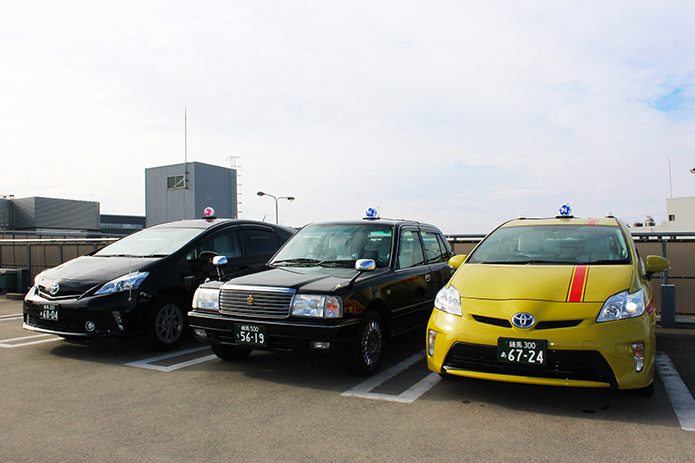
On 5 April, according to Nikkei Business (18 April), Nihon Kotsu Co., Ltd., a major taxi firm, submitted an application to reduce its fare for the first kilometre of a journey to ¥410—from ¥730—in the 23 wards of Tokyo, as well as the cities of Musashino and Mitaka in greater Tokyo. If approved, the reduction would go into effect in April 2017.
It is hoped that lower initial fares will take some of the bite out of tourists’ impressions that Tokyo’s taxis are overpriced. (Currently London’s charge the equivalent of ¥370 for the first 260 metres, while New York’s charge ¥270 for the first 320 metres.)
Reducing fares for short rides may also appeal to seniors commuting between home and hospital, or home and shopping areas.
For longer rides, however, the price would go up—a 10km ride would cost 3% more than current fares—leading some operators to voice opposition to any change to the status quo.
Since it was founded in 2009, Uber’s ride-sharing service has expanded to some 70 countries. In 2013, the firm established a subsidiary in Japan but, in March 2015, the business shut down a ride-sharing trial in Fukuoka City after the government objected to the service on the grounds that it equates to having unlicensed taxis and is, therefore, illegal. Last year, however, Prime Minister Shinzo Abe showed a more constructive attitude, saying it might be put to use “as a means of transport for tourists”.
Uber Japan has announced that, beginning in May, it would be conducting new trials in Tango City, Kyoto Prefecture. The starting fare would be ¥480 for the first 1.5km, which is substantially cheaper than the rates charged by conventional taxi fleets.
Japan’s interest in the practice of ride-sharing appears to be growing, and the taxi industry is starting to show signs of nervousness. Hinomaru Kotsu, Nihon Kotsu and other major taxi firms have applied to the Ministry of Land, Infrastructure, Transport and Tourism to reduce their initial fares to under ¥500.
Nikkei Business has described Uber as analogous to the “Black Ships”— a reference to US Commodore Matthew C. Perry’s fleet that, in the 1850s, forced Japan to emerge from its policy of national seclusion. Interviewee Kazuhiro Ota, professor at Senshu University, said that, “as user convenience keeps increasing, I suppose customers’ tendency to choose specific taxi firms will also increase”.